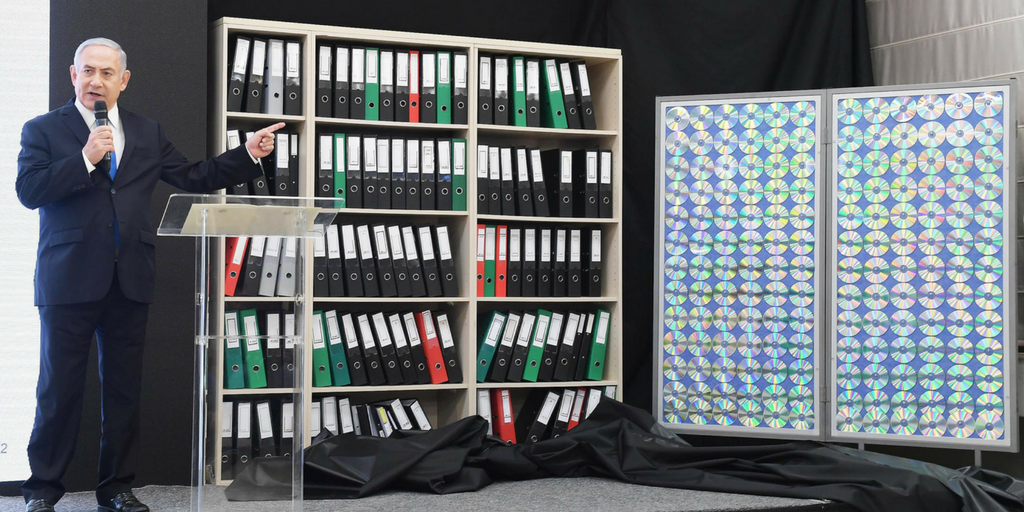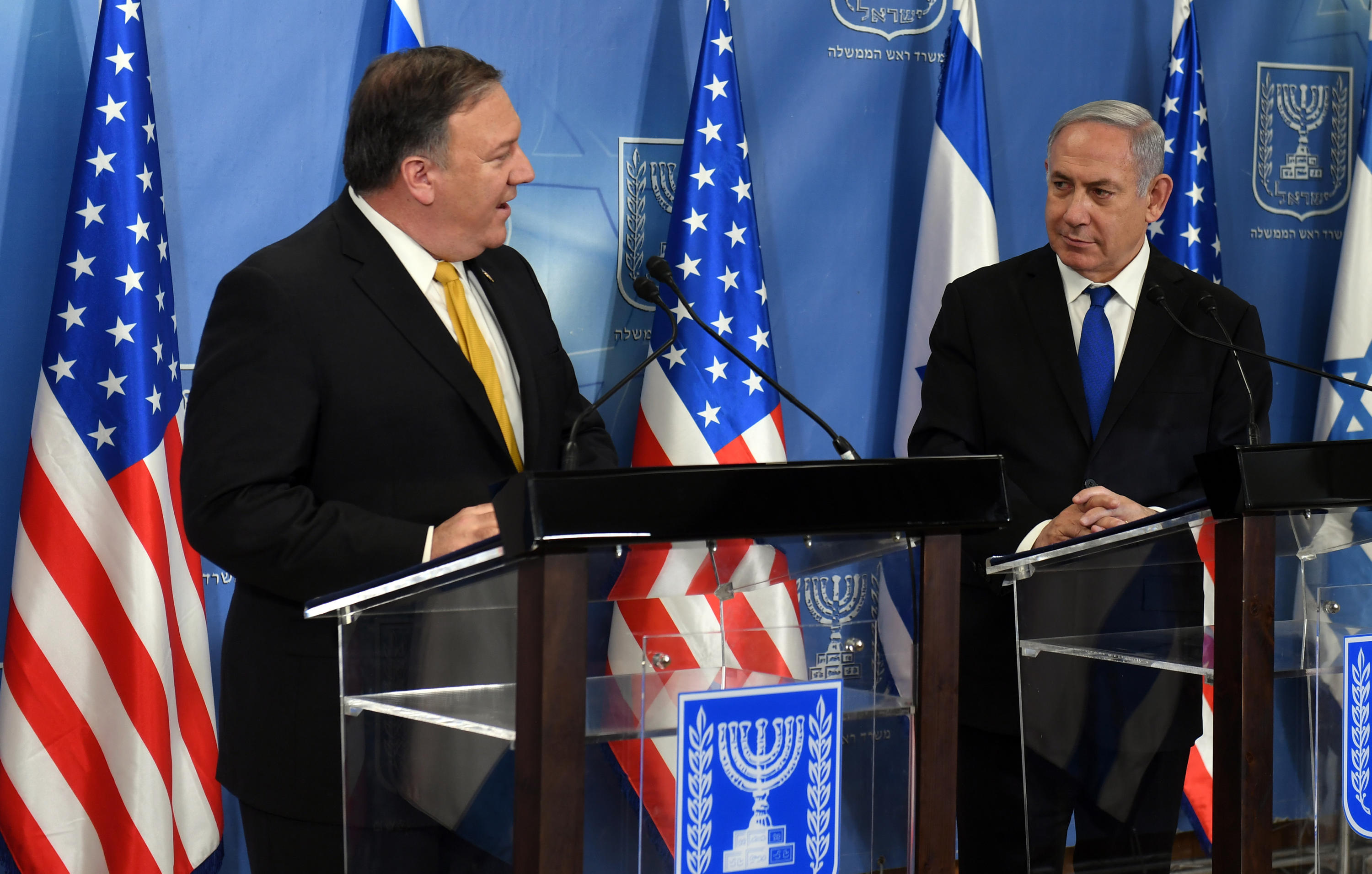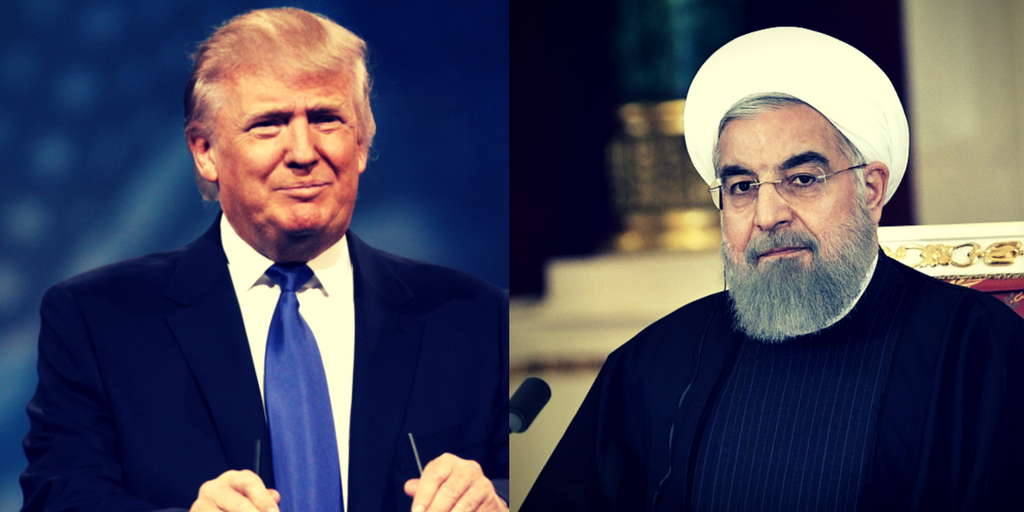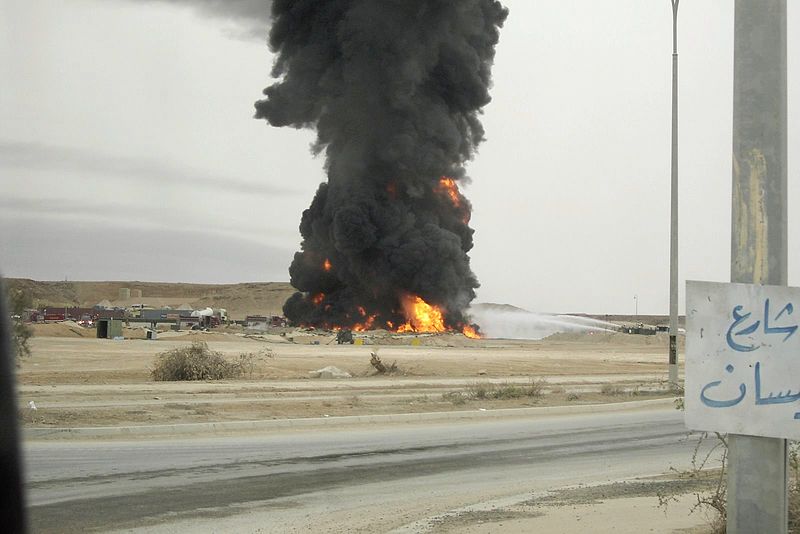Israel is approaching a point when it must decide to destroy enemy capabilities, rather than attempting to deter the enemy from using them.
To remain at peace when you should be going to war may be often very dangerous…Let us attack and subdue…that we may ourselves live safely for the future.
– Thucydides (c. 460–395 BCE)
No government, if it regards war as inevitable, even if it does not want it, would be so foolish as to wait for the moment which is most convenient for the enemy.
– Otto von Bismarck (1815–1890)
…it is possible that the dangers into which we are steadily advancing would never have arisen. But the world and the Parliaments and public opinion would have none of that.. When the situation was manageable it was neglected, and now that it is thoroughly out of hand we apply too late the remedies which then might have effected a cure…
Winston Churchill (1874-1965), House of Commons, May 2, 1935.
In the past few days, senior IDF officers have publicly warned that the chances of war on Israel’s northern border in 2018 are growing significantly –see for example here and here.
100,000 missiles just for show?
The specter of renewed fighting presents Israel with a daunting dilemma.
Since the end of the 2006 Lebanon War, poorly conducted—and even more poorly concluded—by the Olmert government, the arsenal of the Iranian terror proxy, Hezbollah has grown exponentially in both the quantity and quality of its weaponry—now reportedly over ten times its pre-war size, and vastly enhanced in terms of its precision and destructive capacity.
Indeed, no one even vaguely familiar with the brutal nature of the organization—its gory past, and chilling proclamations of future intent—could even remotely entertain the hopelessly naïve belief that it was stockpiling over 100,000 missiles just for show.
Accordingly then, the working assumption underlying Israel’s strategic planning must be that, at some stage, they will in fact, be used against Israel and its civilian population centers. Certainly, any policy discounting such a possibility as implausible would be wildly irresponsible.
As Israeli military sources point out—the likelihood of such a grim scenario has been increased by several other factors—over which Israel has little to no control.
The one is the winding down of the civil war in Syria, in which Hezbollah has been embroiled to support their ally, Bashar al-Assad, who appears to have regained control of much of the country. This allowed Hezbollah forces to begin disengaging from the fighting and to refocus their attention on the hated “Zionist entity” to the south. The other is the undisguised efforts of Iran to establish a permanent military presence in both Syria and Lebanon—including the deployment of troops and the production of weapons in these two client states—and the completion of a Shia crescent, creating an effective land bridge from Iran to the Mediterranean coast.
Who decides when?
Given the assumption that, bolstered by its patron’s pervasive physical presence, Hezbollah will in all likelihood, eventually, use the vast arsenal at its disposal, the inevitable question is: Will Israel allow its deadly adversary to choose the time, place and circumstances for a major attack against it? Indeed, more to the point, can Israel afford to allow Hezbollah such a choice?
To grasp the consequences of permitting Hezbollah the chance of a large-scale first-strike, it is necessary to understand that the organization now poses a much graver threat than that of an asymmetric war with a guerrilla army, as it did in the past. Thus, a study published in July 2017 by a well-known security studies institute warned:
“…military buildups by Iran and Hezbollah – in Syria, and the production of high quality weapons in Lebanon – could mark the start of a new era… and could be seen as an attempt by Iran and Hezbollah to create a symmetrical strategic equation with Israel, if not more than that, i.e., achieving the capability to inflict significant damage to critical military and civilian systems in Israel”.
Accordingly, Hezbollah has become as a strategic danger to Israel, and while on its own it is clearly unable to invade and conquer large tracts of territory, it is eminently capable of wreaking massive damage on Israel’s civilian population and its strategic infrastructure.
“Unprecedented threat to infrastructure…”
Both the sheer numbers and greatly improved precision of Hezbollah’s weaponry, relative to 2006, could pose an almost insurmountable challenge to Israel’s missile defense systems. For now, not only would a far greater number of missiles be launched, but far fewer would be off target, and could therefore be left to fall un-intercepted, causing neither damage nor casualties…
Thus, the previously cited study cautions: “the threat represented by even a small number of precision missiles that breach Israel’s countermeasures and strike critical systems, such as electricity generation, could be unprecedented. The picture is similar with regard to other critical systems, such as national electricity management; natural gas infrastructure; sea water desalination (only five facilities supply about half of Israel’s drinking water); and many other examples from civilian and military fields.”
As the authors, former government minister, Gideon Sa’ar, and experienced Israeli air force veteran, Ron Tira, point out: “Israel is exceptionally vulnerable to attack by precision weapons, as on the one hand it is an advanced Western country dependent on sophisticated technologies, and on the other it is small, with very concentrated infrastructures and very little redundancy.”
The effects of the accompanying civilian casualties, the disruption of vital services and socio-economic routine—and consequent corrosive impact on public morale of such an assault are difficult to overstate. Indeed, there are certainly liable to be far-reaching and irreversible ramifications for the future resilience of the county—which must be averted at all costs.
Degrading deterrence?
Moreover, if a surprise precision missile attack were launched at Israel’s major air bases, even if the aircraft were left unscathed, damage to runways and infrastructure could render them inoperative—thus crippling, or at least severely curtailing, Israeli ability to retaliate.
After all, the very perception of the feasibility of such a scenario on the part of the enemy could, in itself, erode Israeli deterrence, based as it is—at least in conventional contexts—largely on airpower. This might well prompt the enemy to launch such an attack, in the belief that, if successful, it could then proceed to bombard the country with relative—albeit temporary—impunity.
Indeed, the very concept of ongoing deterrence, as the term has been used in the enduring Arab-Israeli conflict, in which large-scale military clashes flare up regularly, typically after a tense interbellum of several years, should be critically examined. In the intervening period between fighting, Israeli sources attributed the relative calm to the effectiveness of Israeli “deterrence”.
However, Israel’s adversaries, whether Hamas or Hezbollah, have not been deterred in the sense that they have had their will to engage in combat broken. Quite the reverse. Not only have they emerged from each engagement still spoiling for a fight, but after a period, they have emerged with new and vastly enhanced capabilities to be employed in the next round of battle.
So rather than being deterred, both Hamas and Hezbollah have merely been forced to regroup, rearm and redeploy—ready to attack when the time appears opportune.
But for the grace of God?
Certainly, with regard to Hezbollah, claims that it has been deterred, rather than compelled to regroup, rearm and redeploy—seem, to be charitable, unpersuasive. After all, what adversary, if deterred, proceeds immediately to expand their offensive capabilities by over a thousand percent?!
Indeed, it is an open question as to whether Hezbollah—had it not been enmeshed in the Syrian civil war in 2014—would have joined Hamas during Operation Protective Edge in a coordinated bombardment of Israeli cities to overwhelm the defensive capabilities of the Iron Dome anti-missile system.
It is an equally open—and ominous—question as to whether it will do so in a fourth round of fighting in Gaza—something numerous pundits consider unavoidable.
Regarding the situation on the northern border, several pundits have advocated a process of limited strikes on specific targets to foil the Iranian buildup, and convey the message that Israel will not tolerate such developments—and will not finch from escalation to prevent them.
This, however, is a prescription that is very likely to fail, increasing dangers, rather than diminishing them. Indeed, given manifest Iranian resolve and proven difficulty in breaking Hezbollah’s will to fight, it is liable to lead not only to the hardening of targets— for example by converting them from surface to underground sites—but to familiarizing the enemy with Israel’s methods and capabilities.
So what then, should Israel do to confront the emerging strategic peril in the north?
Deterrence vs. preemption: the doctrinal clash
At the risk of sounding repetitive, I have been warning for years that successive Israeli governments have been backing away from confrontations in which Israel can prevail, thereby risking backing the country into a confrontation in which it may not—or only do so at exorbitant costs.
Such a situation may well be brewing on the northern border today—with Iran at the gates in Syria, with Hezbollah deploying in the Golan, with a massive arsenal in the Lebanon trained on much of the country, and with the possibility of a coordinated attack in the south from Gaza. And if Israel waits until Iran can spread an effective nuclear umbrella over its Judeocidal proxies….?
Simple common sense and survival-based logic would seem to mandate one course of strategic action to contend with these ominous developments: Massive preemption to destroy the enemies’ ability to attack, not deter them from doing so.
In this regard, it is important to gasp that there is a doctrinal clash between the ability to attain effective deterrence and to achieve successful preemption. After all, in order to deter adversaries, one needs to convince them that they will suffer unacceptable damage were they to attack. But to convey such a message, one needs to reveal one’s capabilities to wreak such devastation—for otherwise, how could one’s potential attacker be convinced not to attack?
By contrast, successful preemption typically calls for surprise to overwhelm the enemy with an unexpected assault—which requires concealing one’s capabilities so that the enemy cannot make preparations to thwart them.
The choice of which of these somewhat antithetical doctrines to adopt may soon be upon Israeli policy makers.
1967 triumph vs 1973 trauma
In weighing this strategic dilemma, Israel’s leadership will, in effect, have to decide whether they are willing to risk sacrificing Israeli lives to appease the deity of political correctness. For in the past, restraint has often proven ruinous.
So the choice is between incapacitating the enemy while you can; or continuing to deter the enemy—until you can’t!
In making this decision, it may well be instructive for today’s policymakers to look back at the nation’s history and compare the triumph preemption brought in 1967, to the trauma wrought by deterrence failure in 1973.
Seen in this light, the lesson seems unequivocal… Or is that just me?











